Ever tried picking the perfect thank you card size and ended up feeling like you were choosing between planets instead of paper? One card looks too tiny, another feels big enough to double as a billboard, and suddenly you’re questioning every life choice that brought you to the stationery aisle. Relax, you’re not alone. Choosing the right size shouldn’t feel like a high stakes puzzle, yet it kind of does when you want your gratitude to look polished instead of “oops, I tried.” This guide breaks down every dimension clearly, so you can send thank you notes without needing a ruler, calculator, or cosmic intervention.
Why Thank You Card Size Matters

Card size influences more than aesthetics. It affects how much you can write, how your design prints, what your envelopes cost, and how the finished piece feels when someone holds it. A card that’s too small feels cramped. A card that’s too large becomes bulky or expensive to mail. Picking the right dimension helps your message land with the tone you intended.
10 Everyday Items That Are 3 Feet Long
Standard Thank You Card Sizes

Print studios, stationery brands, and greeting card manufacturers rely on a handful of consistent formats. These sizes work well for everyday thank you notes, event based messages, and branded stationery.
A2 Thank You Card Size
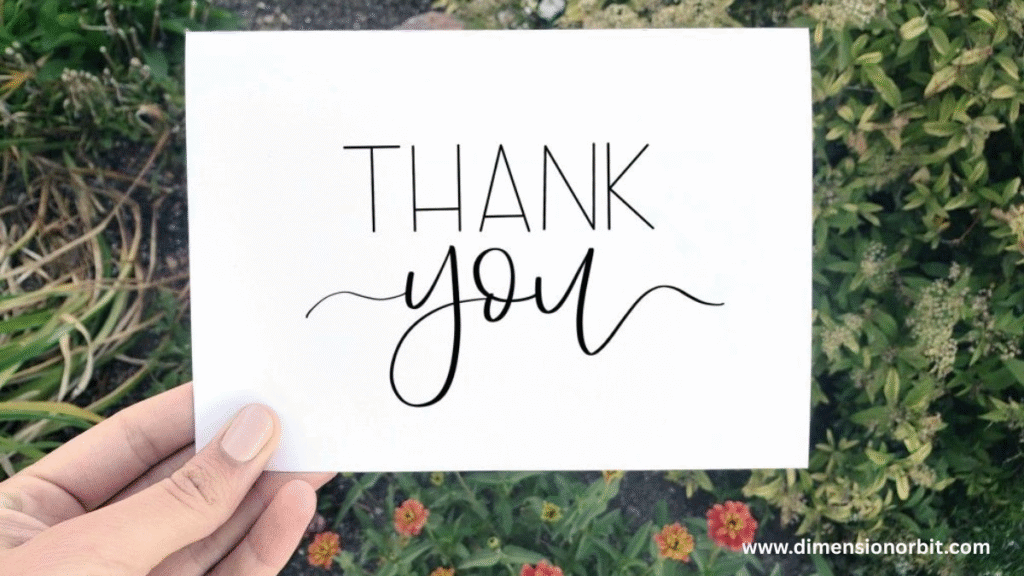
The A2 remains the most widely used standard thank you card size in the United States. It’s compact, clean, and ideal for short personal messages. This size fits A2 envelopes, follows US card size standards, and prints easily on most home and commercial printers.
Measurements:
- Flat size: 5.5 × 8.5 in
- Finished folded size: 4.25 × 5.5 in
This format works well for personal notes, simple designs, and everyday stationery.
10 Common Things That Are 400 Feet Long
A6 Thank You Card Size
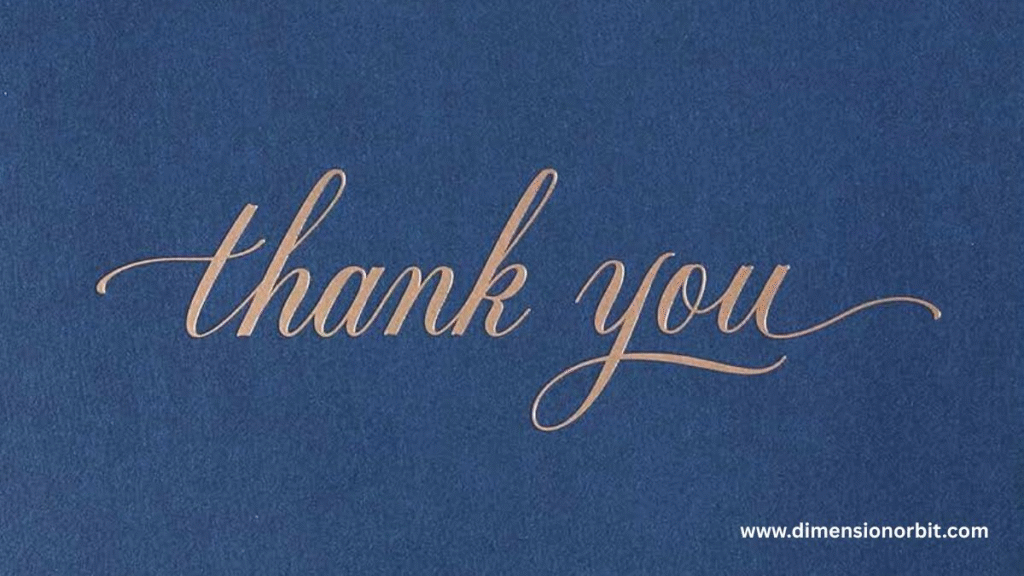
The A6 offers more writing space than A2 without feeling oversized. Its shape makes it compatible with a wide range of templates and layouts, especially designs that incorporate photos.
Measurements:
- Flat size: 6.25 × 9 in
- Finished folded size: 4.5 × 6.25 in
It fits inside A6 envelopes and aligns with international C6 standards when used abroad.
22 Common Things That Are 5 Feet Long
A7 Thank You Card Size
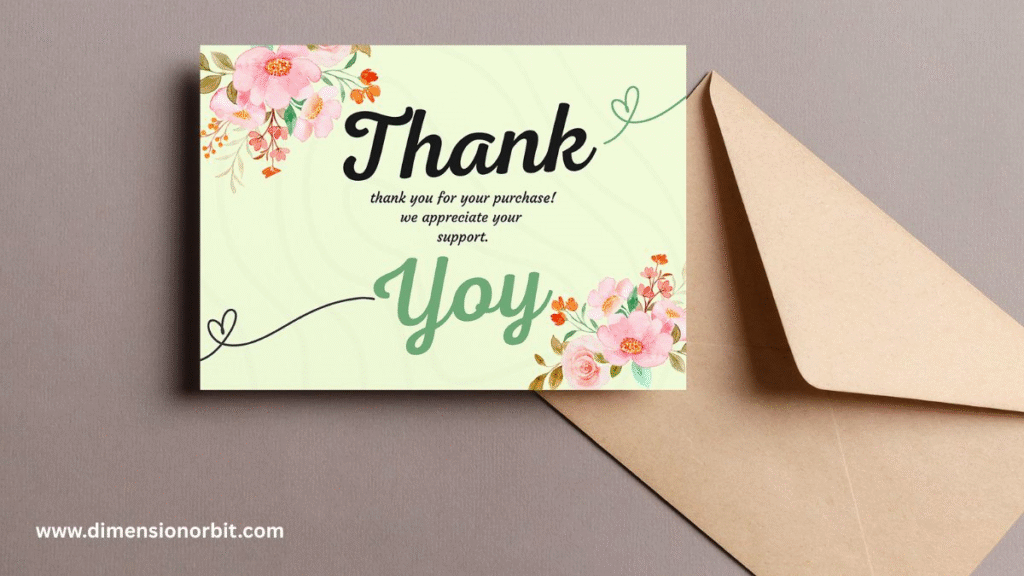
The A7 is the classic greeting card dimension. It communicates a more formal tone and provides ample space for longer notes, printed messages, or professional stationery layouts. Many high-end brands use this format for premium thank you cards.
Measurements:
- Flat size: 7 × 10 in
- Finished folded size: 5 × 7 in
A7 cards pair with A7 envelopes and print cleanly in bulk runs.
Flat Card Sizes (A2 and A6)
Flat cards serve as a lighter, simpler alternative to folded options. They work well for business thank you card inserts, ecommerce thank you notes, and minimal stationery.
Common flat sizes:
- A2 flat: 4.25 × 5.5 in
- A6 flat: 4.5 × 6.25 in
They slide easily into packages and envelopes without adding bulk.
Postcard Thank You Card Size
Postcard style thank you notes follow USPS postcard mailing rules, making them cost efficient to send.
USPS requirements include:
- Standard postcard size: 4 × 6 in
- Maximum postcard rate: 4.25 × 6 in
- Minimum size: 3.5 × 5 in
This format works well for direct mail thank you notes and lower cost mail campaigns.
Understanding Thank You Card Measurements

Printers use specific terminology to ensure accurate cuts and clean designs. Knowing these measurements helps you prepare your artwork correctly.
Folded vs Flat Measurements
Folded cards have two different sizes:
- Flat size before folding
- Finished size after folding
Example:
A2 flat size: 5.5 × 8.5 in
A2 finished size: 4.25 × 5.5 in
This distinction matters when creating the digital design.
Bleed, Trim, and Safe Zone
These three terms define how printers handle artwork:
| Term | Definition | Standard |
|---|---|---|
| Bleed | Artwork extended beyond trim to avoid white edges | 0.125 in |
| Trim | The final cut size | Card’s finished size |
| Safe Zone | Area inside trim where text must remain | 0.25 in margin |
Designing within these boundaries prevents important content from getting trimmed off.
How to Choose the Best Thank You Card Size
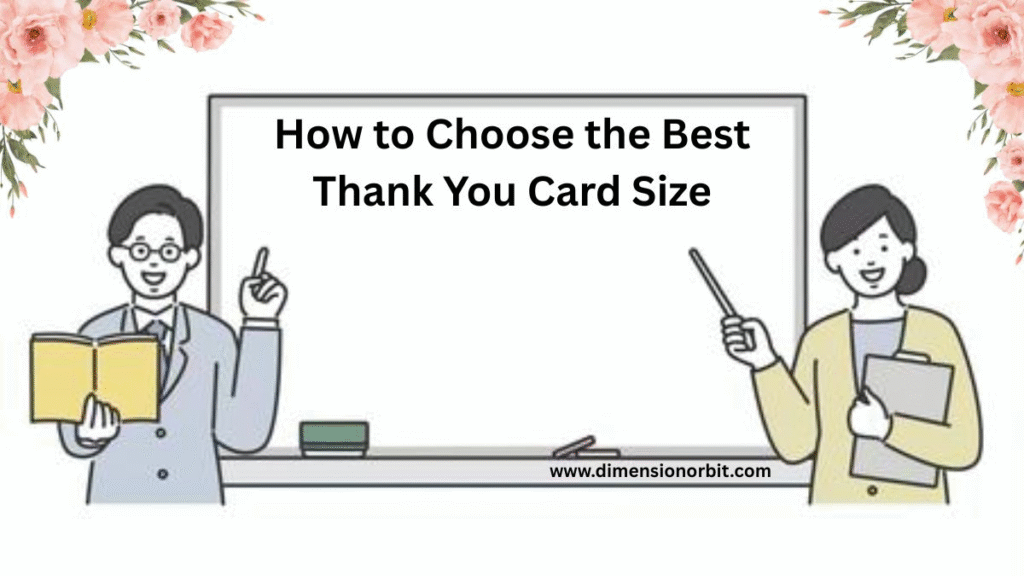
Different situations may call for different formats. Choosing a card size becomes easier when you consider the message, the tone, and the method of delivery.
Personal Thank You Cards
Personal notes work well in smaller dimensions. A2 remains the preferred choice for everyday stationery. A6 offers extra space without feeling excessive.
Wedding Thank You Cards
Wedding sets often include:
- A2 for handwritten messages
- A6 for cards that include printed photos
Both sizes fit well into wedding stationery suites and pair smoothly with matching envelopes.
Business Thank You Cards
Companies choose their card size based on purpose:
- A2 or A6 flat cards for packaging inserts
- A7 folded cards for clients and professional correspondence
- 4 × 6 postcards for affordable mail campaigns
Each option supports a different communication style.
Ecommerce Thank You Notes
Online shops rely heavily on flat card sizes because they fit inside mailers, product boxes, and envelopes without increasing shipping cost.
Common choices:
- A2 flat
- Mini inserts (2 × 3.5 in)
These formats present branding cleanly and create a polished unboxing experience.
Event Thank You Cards
Events that call for a formal presentation often lean toward:
- A6 for clean, spacious designs
- A7 for more substantial layouts
These sizes align with most event stationery templates.
Non Standard Thank You Card Sizes

Some thank you cards fall outside typical formats but still function well depending on your preferences.
Square Cards (5 × 5 or 6 × 6 inches)
Square cards offer a modern visual style, though USPS treats them as non machinable mail. This results in a higher postage cost. These cards work well for hand-delivered notes or premium paper suites.
Mini Cards (2 × 3.5 inches)
Mini thank you cards mirror the size of a business card. They fit inside packages and gift bags but aren’t suitable for mailing alone.
Oversized Cards (5 × 8 inches and larger)
Oversized designs allow more writing space and accommodate large printed layouts. They often require additional postage and slightly larger envelopes.
Thank You Card Sizes in the US and International Markets
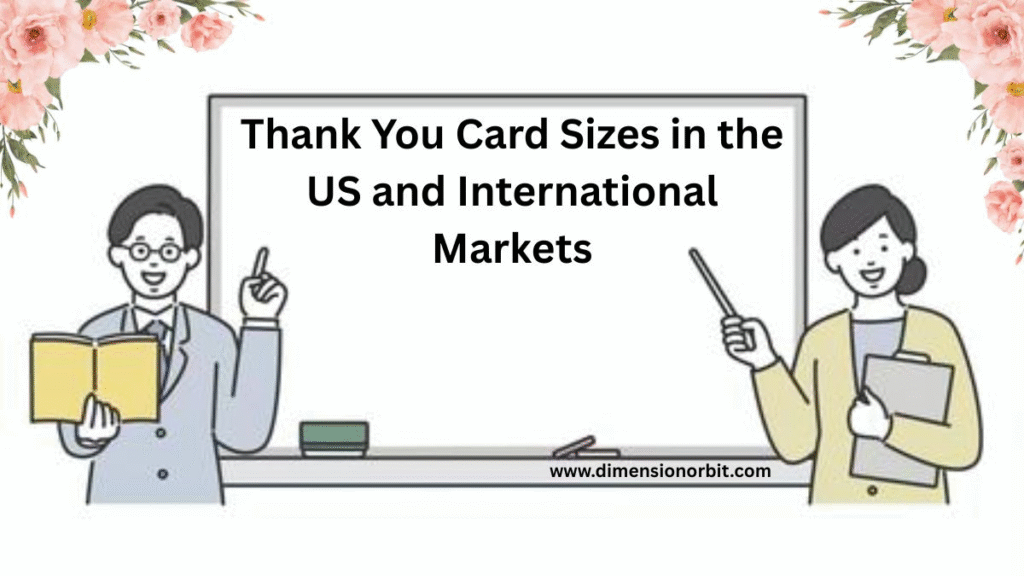
Card standards shift slightly between regions. Understanding the differences helps avoid mismatch issues with envelopes and printers.
US Card Size Standards
The US market relies on the A series envelope system:
- A2
- A6
- A7
These sizes dominate greeting card and stationery products throughout the country.
International Card Sizes
The UK and EU primarily use ISO envelope formats, including:
| Envelope | Dimensions | Card Fit |
|---|---|---|
| C6 | 114 × 162 mm | A6 cards |
| DL | 99 × 210 mm | Compliment slip layouts |
Many international printers support both US and ISO sizing.
Envelope Size Guide
Matching your thank you card to the correct envelope is essential to avoid bent edges or postage issues.
| Card Size | Envelope Size | Notes |
|---|---|---|
| A2 (4.25 × 5.5) | A2 envelope | Standard US personal stationery |
| A6 (4.5 × 6.25) | A6 envelope | Compatible with C6 internationally |
| A7 (5 × 7) | A7 envelope | Traditional greeting card size |
| 4 × 6 postcard | Postcard compliant | Lowest USPS postage |
| Square card | Square envelope | USPS surcharge |
This table serves as a reliable quick reference guide.
USPS Mailing Rules for Thank You Cards
Sending cards through the mail requires meeting USPS standards.
Key mailing rules:
- Minimum size: 3.5 × 5 inches
- Maximum letter size: 6.125 × 11.5 inches
- Square envelopes require a surcharge
- Postcards under 4.25 × 6 inches qualify for postcard postage
- Cards exceeding standard size may require additional postage
Following these guidelines ensures your mail processes smoothly and avoids unexpected fees.
Printing Tips for Thank You Cards
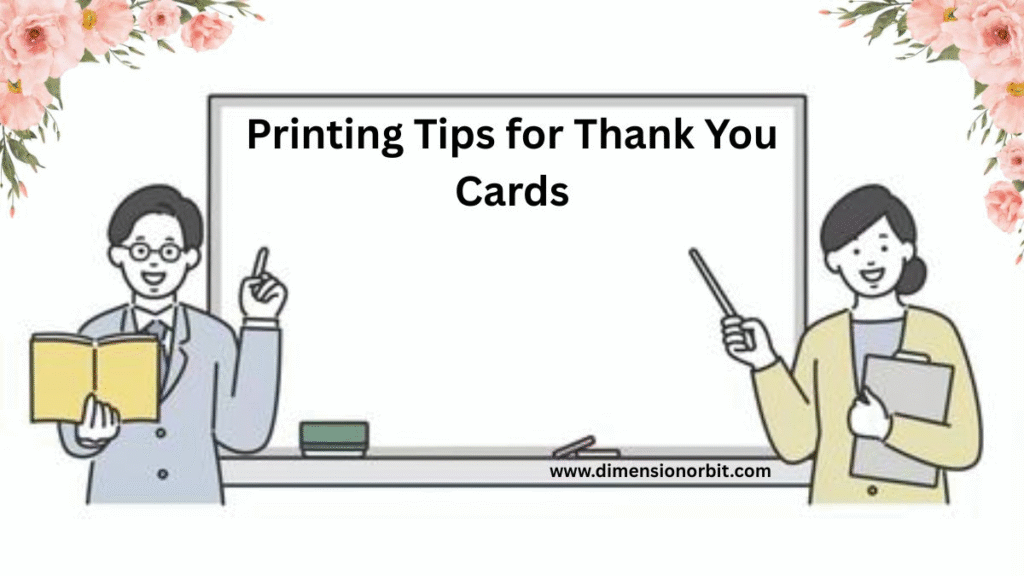
Print quality shapes the overall impression of your card. A few essential guidelines help ensure a clean, professional finish.
Paper Weight
Cardstock options influence the feel of the final product. Common choices include:
- 80–110 lb cover stock (standard)
- 120–130 lb cover stock (premium)
- 14–16 pt cardstock (postcards and flat cards)
Heavier paper feels sturdier and more refined.
Digital vs Offset Printing
Both printing methods can handle standard and custom thank you card sizes.
- Digital printing suits small batches and short timelines.
- Offset printing works best for large production runs and exact color matching.
Working with a reputable printer ensures consistent results.
Quick Decision Guide for Choosing the Right Size
This chart provides a fast way to determine the ideal thank you card dimensions.
| Situation | Recommended Size | Reason |
|---|---|---|
| General personal notes | A2 | Classic everyday size |
| Photo thank you cards | A6 | Fits 4 × 6 prints cleanly |
| Formal business messages | A7 | Professional and spacious |
| Ecommerce package inserts | A2 or A6 flat | Fits inside boxes easily |
| Direct mail | 4 × 6 postcard | Lower postage |
| Gift packaging | Mini 2 × 3.5 | Simple and compact |
| Modern layouts | Square | Sleek presentation |
| Large group signatures | Oversized | Extra writing space |
This simple guide eliminates guesswork when selecting your next card format.
Digital tool
Digital tools like Feet and Inches Calculator can convert inches to centimeters or feet instantly. Many smartphone apps now offer augmented reality measuring features, allowing you to gauge objects virtually and compare them to known lengths.
FAQs
What is the most common thank you card size?
The most common thank you card size in the US is A2 (4.25 × 5.5 inches). It’s compact, easy to write on, and pairs perfectly with standard A2 envelopes.
What size thank you card should I use for wedding notes?
Most wedding thank you cards use A2 for handwritten notes or A6 when including a 4×6 photo. Both sizes match typical wedding stationery sets.
What size fits a 4×6 photo?
An A6 card (4.5 × 6.25 inches) fits a 4×6 photo without cropping or bending, making it ideal for photo thank you cards.
Are square thank you cards mailable?
Yes, square cards are mailable, but USPS charges a non machinable surcharge because square envelopes can’t run through sorting machines.
What’s the best size for business thank you card inserts?
For ecommerce and packaging inserts, A2 flat or A6 flat cards work best. They fit easily in boxes and mailers without increasing shipping cost.
Do postcards count as thank you cards?
Absolutely. A 4×6 postcard is a popular thank-you format and offers lower postage, making it great for bulk mail or business follow ups.
What size envelope do I need for thank you cards?
Match the envelope to the card:
- A2 card → A2 envelope
- A6 card → A6 envelope
- A7 card → A7 envelope
This ensures a clean, professional fit.
Can I use custom thank you card sizes?
Yes, custom sizes are fine, but make sure they follow USPS mailing minimums (3.5 × 5 in) and consider envelope availability to avoid extra costs.
Conclusion
Finding the right thank you card size doesn’t have to feel like solving a mystery with a ruler in one hand and frustration in the other. Once you know the standard dimensions, mailing rules, and the purpose behind each format, choosing the perfect card becomes surprisingly simple. Whether you want a compact A2 note, a photo friendly A6, or a polished A7 greeting, the best size is always the one that supports your message and feels natural to send. With these guidelines in your pocket, your thank you notes will look intentional, professional, and effortlessly well chosen every single time.

Jhon AJS, the author of Dimension Orbit, is an experienced blogger fascinated by the mysteries of existence. He explores every type of dimension from scientific to spiritual with clarity and creativity. Jhon’s engaging writing style invites readers to think deeper, question reality, and discover new perspectives on the universe.





